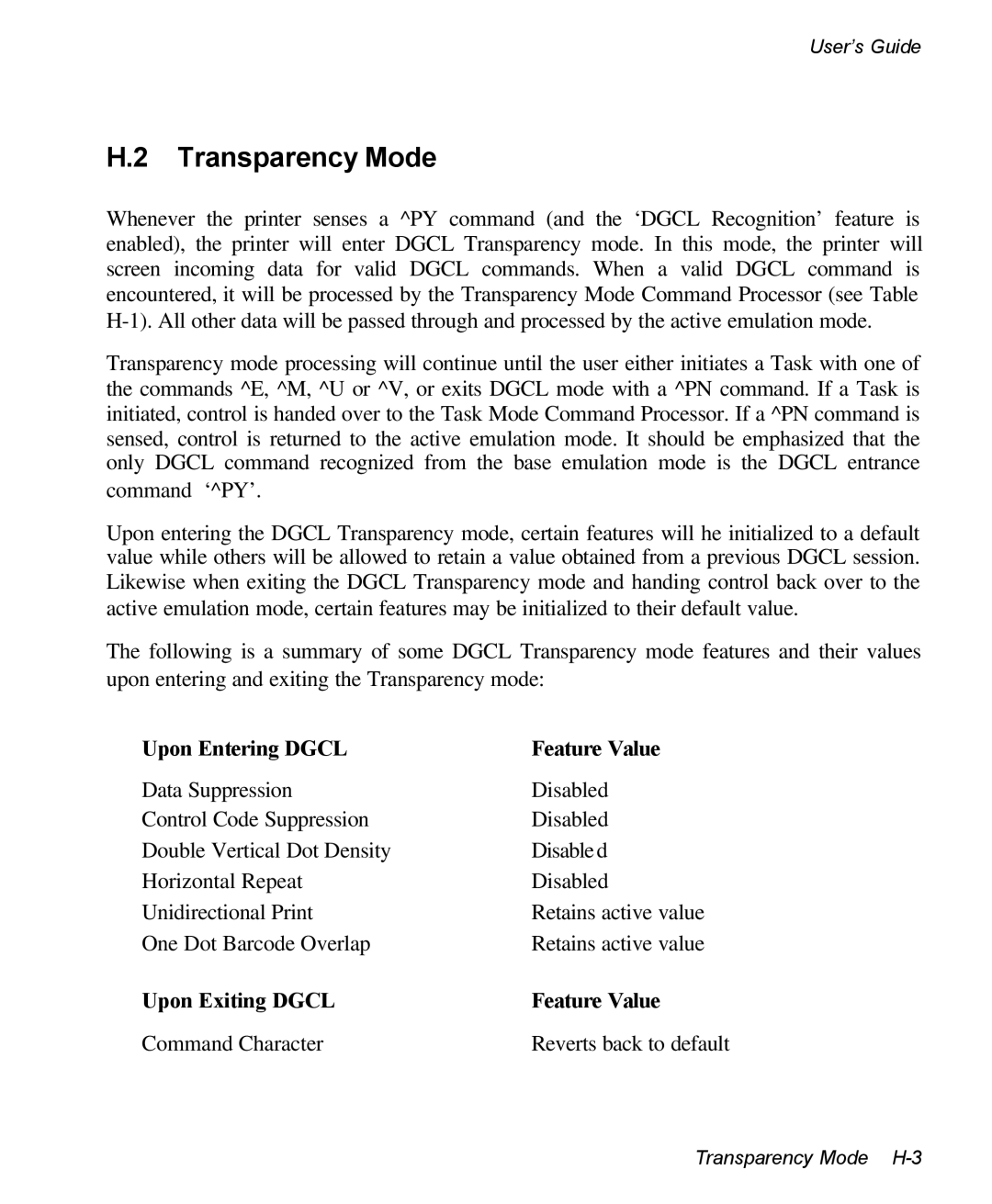User’s Guide
H.2 Transparency Mode
Whenever the printer senses a ^PY command (and the ‘DGCL Recognition’ feature is enabled), the printer will enter DGCL Transparency mode. In this mode, the printer will screen incoming data for valid DGCL commands. When a valid DGCL command is encountered, it will be processed by the Transparency Mode Command Processor (see Table
Transparency mode processing will continue until the user either initiates a Task with one of the commands ^E, ^M, ^U or ^V, or exits DGCL mode with a ^PN command. If a Task is initiated, control is handed over to the Task Mode Command Processor. If a ^PN command is sensed, control is returned to the active emulation mode. It should be emphasized that the only DGCL command recognized from the base emulation mode is the DGCL entrance command ‘^PY’.
Upon entering the DGCL Transparency mode, certain features will he initialized to a default value while others will be allowed to retain a value obtained from a previous DGCL session. Likewise when exiting the DGCL Transparency mode and handing control back over to the active emulation mode, certain features may be initialized to their default value.
The following is a summary of some DGCL Transparency mode features and their values upon entering and exiting the Transparency mode:
Upon Entering DGCL | Feature Value |
Data Suppression | Disabled |
Control Code Suppression | Disabled |
Double Vertical Dot Density | Disabled |
Horizontal Repeat | Disabled |
Unidirectional Print | Retains active value |
One Dot Barcode Overlap | Retains active value |
Upon Exiting DGCL | Feature Value |
Command Character | Reverts back to default |
Transparency Mode
